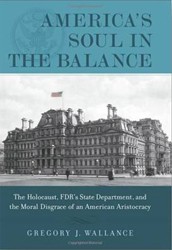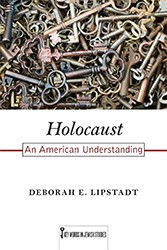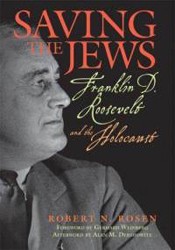By
– June 7, 2013
Rashke, the author of The Killing of Karen Silkwood and Escape from Sobibor, has written a provocative history of how U.S. government agencies, such as the Immigration and Naturalization Service, the FBI, the CIA, and Congress, aided and abetted an “open” door policy for Nazi war criminals soon after the Second World War. Following in the footsteps of Jon Loftus, whose books—The Secret War Against the Jews (1994), Unholy Trinity (1998), America’s Nazi Secret (2010) — were widely read in the U.S., Rashke’s tome goes much deeper in detailing our governments complicity in allowing Nazi war criminals and their collaborators to enter the country, justifying their action in the name of using Nazis as weapons against the Soviet Union during the Cold War.
Focusing on the trials and tribulation of John “Iwan” Demjanjuk, Rashke asks why it took almost sixty years for the United States to bring him to justice. His answer is found in the paranoia surrounding the Cold War when our government was determined to use “useful” Nazi war criminals and collaborators to work for the U.S. in Europe as spies, saboteurs and in the U.S., scientists to develop advanced weapons to be used when the Cold War became a hot one. Using loopholes in our immigration laws, thousands of alleged former Nazis and Nazi collaborators, who had not yet been convicted of a war crime, were welcomed to the U.S., while at the same time using the Immigration and Naturalization Act (1952) to prevent thousands of Jewish refugees from entering the country.
This is a carefully researched book, which includes information hitherto undisclosed to the general public, such as Rashke’s assertion that Nazi scientists working for the U.S. government conducted deadly mustard gas experiments on unwitting U.S. servicemen at a secret gas chamber in Maryland, modeled after the one in Dachau, leaving some injured for life.
The heroes of Rashke’s riveting history are Congresswoman Elizabeth Holtzman and Justice Department prosecutor Eli Rosenbaum, who worked for decades to hold hearings that led to the creation of the Office of Special Investigations (OSI) which successfully prosecuted many of these Nazi war criminals. In this context, Rashke raises many questions, such as the one Demjanjuk posed in one of his trials, “If you had been me in 1942, what would you have done?” Rashke’s response presents the reader with the biting conundrum as to how, Nazi war criminals aside, do we distinguish the second tier of war criminals, collaborators, who willingly collaborated with the Nazis and those who were forced to do so. It is unclear from the evidence that convicted Demjanjuk (who died in 2012) which type of collaborator he was and does it matter?
Focusing on the trials and tribulation of John “Iwan” Demjanjuk, Rashke asks why it took almost sixty years for the United States to bring him to justice. His answer is found in the paranoia surrounding the Cold War when our government was determined to use “useful” Nazi war criminals and collaborators to work for the U.S. in Europe as spies, saboteurs and in the U.S., scientists to develop advanced weapons to be used when the Cold War became a hot one. Using loopholes in our immigration laws, thousands of alleged former Nazis and Nazi collaborators, who had not yet been convicted of a war crime, were welcomed to the U.S., while at the same time using the Immigration and Naturalization Act (1952) to prevent thousands of Jewish refugees from entering the country.
This is a carefully researched book, which includes information hitherto undisclosed to the general public, such as Rashke’s assertion that Nazi scientists working for the U.S. government conducted deadly mustard gas experiments on unwitting U.S. servicemen at a secret gas chamber in Maryland, modeled after the one in Dachau, leaving some injured for life.
The heroes of Rashke’s riveting history are Congresswoman Elizabeth Holtzman and Justice Department prosecutor Eli Rosenbaum, who worked for decades to hold hearings that led to the creation of the Office of Special Investigations (OSI) which successfully prosecuted many of these Nazi war criminals. In this context, Rashke raises many questions, such as the one Demjanjuk posed in one of his trials, “If you had been me in 1942, what would you have done?” Rashke’s response presents the reader with the biting conundrum as to how, Nazi war criminals aside, do we distinguish the second tier of war criminals, collaborators, who willingly collaborated with the Nazis and those who were forced to do so. It is unclear from the evidence that convicted Demjanjuk (who died in 2012) which type of collaborator he was and does it matter?
Jack Fischel is professor emeritus of history at Millersville University, Millersville, PA and author of The Holocaust (Greenwood Press) and Historical Dictionary of the Holocaust (Rowman and Littlefield).





